
We kindly inform you that, as long as the subject affiliation of our 300.000+ articles is in progress, you might get unsufficient or no results on your third level or second level search. In this case, please broaden your search criteria.

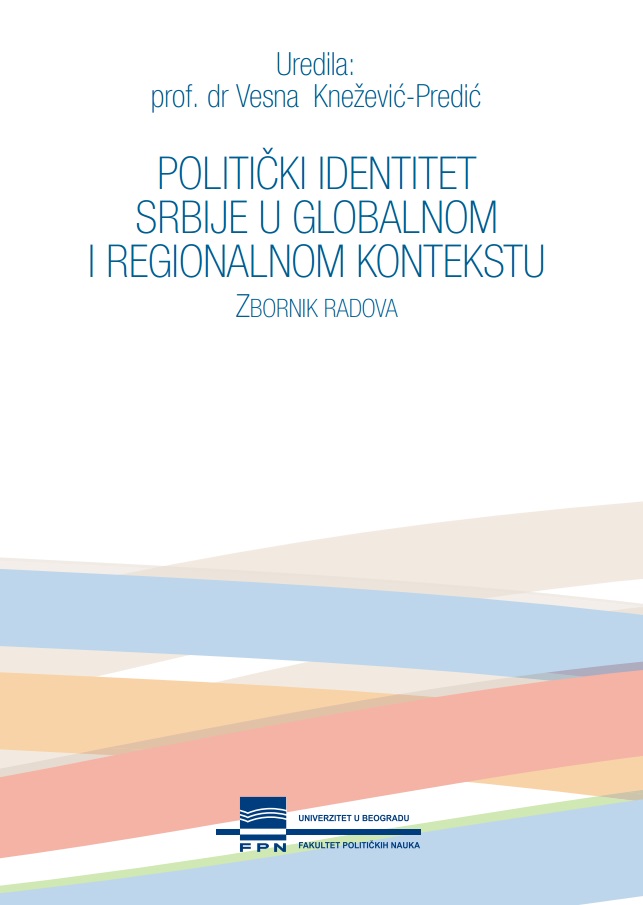
Democratic changes at the beginning of new century marked the new reform directions in the social welfare system with aim to overcome the problems inherited from the previous period − the extreme centralization of the system, high rates of institutionalization, lack of community-based services and the passive position of the beneficiaries in the social welfare system. Therefore, the recognition of deinstitutionalization as one of the basic directions of social welfare reform coincided with these changes. EU integration process of the Republic of Serbia has further enforced and accelerated the incorporation of international standards into national legislation, creating a legal framework for combating discrimination and respect for human rights of people with intellectual and mental disabilities. However, as the medical model of disability was the dominant paradigm for a long time and deeply rooted into social protection system, professionals and policy for persons with disabilities, the positioning from institutional toward care and protection in community has been going on very slow. Despite the existence of formal commitment to transform the system, the process of deinstitutionalization of people with intellectual and mental disabilities in Serbia has not been performed in accordance with the basic requirements which are essential for the success of the process and exercise of the rights of these people. This paper analyzes the extent to which current organization of social protection system is in accordance with the basic principles of deinstitutionalization that are prerequisites for the realization of the rights of the people with intellectual and mental disabilities in accordance with international and national standards.
More...
Radicalisation processes impacting on disaffected and indoctrinated persons and the later involvement of some of them in acts of terrorism are of growing concern for European citizens, their governments and the wider international community. Addressing this threat requires effective prevention policies which some EU member states have been proactive in developing. Effective policies need reliable diagnostic tools designed to identify individuals and groups who might pose a threat. The publication provides a review of existing approaches and tools to identifying, monitoring and assessing radicalisation in Europe and beyond. It further offers a conceptual framework of radicalisation risk and vulnerability indicators and their interpretation as a basis for developing early-warning mechanisms for frontline practitioners in countries which are yet to develop specific prevention and counter-radicalisation policies. The target group of the guide are policymakers at national and EU levels, as well as practitioners directly involved in the prevention of radicalisation in Central and Eastern Europe and beyond.
More...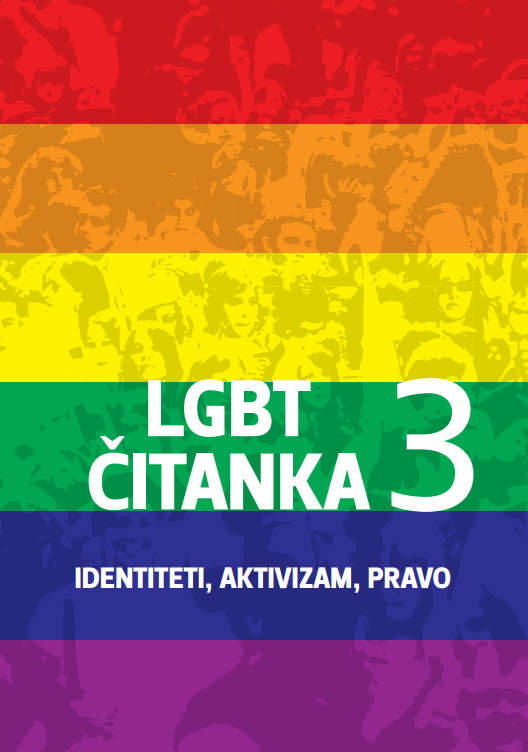
Identitet može biti definisan kao lična karakteristika bilo kojeg pojedinca, a koju dijele članovi_ice određene društvene grupe. Psiholozi najčešće koriste termin identiteta da opišu osobni identitet, dok ga sociolozi koriste da opišu društveni identitet. Termin pregovaranje identiteta u sociologiji označava proces u kojem osoba pregovara sa društvom o značenju svog identiteta. Društvo i kultura preko manje-više organizovanog sistema uloga i sistema značenja koje im pripusuje, daje mogućnost pojedincima da strukturiraju svoje aktivnosti, ali i značenja koje im pridaju. Međutim, društvo ne posjeduje jasan i konačan niz uloga, niti u društvu postoji apsolutni koncenzus oko normi i značenja koje uloge sa sobom nose. Da bismo razumjeli prakse koje pojedinci_ke imaju tokom svog života, neophodno je da razumijemo njihovo shvatanje sebe i značenje i značaj tih praksi u njihovom svakodnevnom životu. Drugim riječima, neophodno je da prihvatimo i razumijemo višestrukost ispoljavanja identiteta koji predstavljaju rezultat aktivnog odnosa individue i društva. Svaka osoba ima pravo definirati svoje tijelo i vlastite identitete, te zahtijevati od društva da to poštuje. To uključuje samodefiniranje i slobodno izražavanje vlastitog spolnog i rodnog identiteta i vlastite seksualne orijentacije. Međutim, rigidne društvene klasifikacije spola, roda i seksualne orijentacije ne prepoznaju i ne priznaju postojanje i ispoljavanje različitosti izvan definiranih okvira i njima imanentnih obrazaca ponašanja i djelovanja.
More...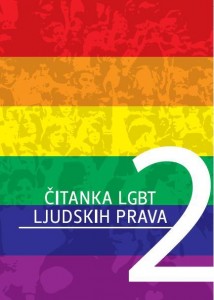
Diskriminaciju ljudi nehetero seksualne orijentacije i “drugačijih” rodnih identiteta možemo pratiti već stoljećima. Od ranog srednjeg vijeka mržnja prema ljudima koji nisu heteroseksualne orijentacije počinje da se institucionalizira, primarno kroz crkvene strukture. Počinju progoni homoseksualaca, lažne optužbe za homoseksualnost (koja se tada nazivala sodomija) u svrhe postizanja političkih ili drugih ciljeva. Jedan od primjera jeste red templara koji je cijeli uništen upravo po ovim osnovama. Iako je homoseksualnost bila nešto što se aktivno pokušavalo iskorijeniti, služila je i kao sredstvo za ucjene, klevete i optužbe. Tokom stoljeća koja su uslijedila, osobe optužene za homoseksualnost bile su u sadašnjim evropskim zemljama podvrgavane kaznama kao što su utapanje, davljenje, odrubljivanje glave, kastriranje, vješanje, spaljivanje i slično (Mondimore 2003: 187). Iako su dolaskom prosvjetiteljstva ovakve kazne znatno smanjene, počinju se pojavljivati kvazimedicinske i kvazinaučne teorije o degeneracijama i iznalaziti raznorazna opravdanja za formalnu kriminalizaciju homoseksualnosti (Mondimore 2003: 187). Tokom dvadesetog stoljeća homoseksualnost je bila kriminalizirana u skoro svim zemljama, i povlačila je za sobom dugotrajne i stroge kazne.
More...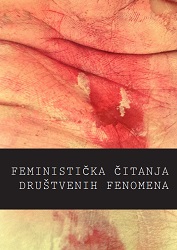
Ova knjiga je rezultat zajedničkog rada polaznica i polaznika Feminističke škole Žarana Papić i nastala je kao plod dvosemestralnog obrazovanja o aktualnim društvenim pitanjima iz perspektive feminističke teorije i prakse. Budući da autorice i autor dolaze iz različitih profesionalnih sfera i različitih polja interesovanja, utoliko je i ova knjiga protkana interdisciplinarnim pristupom različitim društvenim fenomenima, što ovu knjigu čini dodatno zanimljivom koliko i edukativnom. Iako je feminizam, kao marginalizirani društveni pokret u 21. stoljeću kojeg se često degradira i promovira u trivijalnu doktrinu, uglavnom izopćen iz bosanskohercegovačkih akademskih kurikuluma, ova knjiga je pokušaj da se feminizmu u javnom diskursu da prostora kao kredibilnoj kritičkoj teoriji aktualnih društvenih procesa. Budući da živimo u društvu ispresjecanom patrijarhalnom političkom kulturom, feministička teorija čini se obećavajućom za buđenje aktivizma i rađanje konstruktivne kritike društva. Otuda, cilj ovog pojmovnika i jeste provociranje čitatelja/ke na razmišljanje o pojavama koje nas okružuju, a o kojima se u javnom i akademskom diskursu uglavnom ne govori. Sveopća indoktrinacija javnog mnijenja kroz ponavljanje ustaljenih društvenih normi, koje nameću i teme o kojima se smije odnosno ne smije razgovarati, dovela je do pasivizacije društva i nedostatka građanskog obrazovanja o pojedinim, u ovoj knjizi zastupljenim, temama.
More...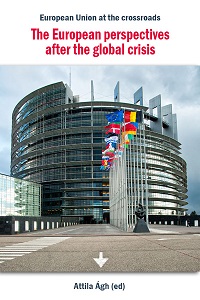
In May 2011, during the Hungarian EU presidency a big international conference was organized in Budapest that offered a good occasion to review of the SBH team presidency and to look beyond to the competitive Europe in the postcrisis period in both national and regional terms. No doubt that the European Union arrived at the crossroads and it necessitated to deal with the European perspectives after the global crisis. So this issue has become the central topic, and also the title of the present, 14th volume of this series, based mostly on the papers of the Budapest expert conference. The protracted global crisis took a “W” shape that culminated in the summer 2011, in such a way the authors closed their chapters in an open ending game in August 2011.
More...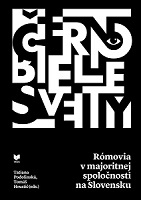
We perceive the world unkown to us as an opposite of our own. It is inhabited by the people who we consider to be our enemies or - in the worst case - non-humans. The news we get from this world are simplified, distorted by the filters of created by the group expectations on the both sides. What is the Roma world like through the perception of the Non-Roma people? How do we behave towards each other? This book provides the answers for these questions.
More...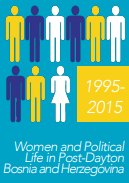
(English edition) While working on improving our program and portfolio on women’s human rights we quickly realized the absence of a detailed and visible account of “women’s” history in Bosnia and Herzegovina. Although there are a significant number of publications and several activist initiatives that address certain fragments of history and explore events, periods of time, and regions, there is currently no exhaustive institutional account of women in Bosnia, nor are attempts being made to create one. The academic community has unfortunately failed in this area. The history of women and their contribution to public life remains at the margins of academic inquiry. The Sarajevo Open Centre published the book Women Documented: Women and Public Life in Bosnia and Herzegovina in the 20th Century. The book was edited by Jasmina Čaušević, a program coordinator at the Sarajevo Open Centre, in cooperation with ten authors. Through publishing this book, the Sarajevo Open Centre and our partner organizations wanted to celebrate the centenary of the First World War in a different way. It was precisely the work on Women Documented that revealed to us the need for further work exploring women’s history in Bosnia and Herzegovina. We hope that our (virtual) museum of women’s history in Bosnia will eventually be institutionalized in Bosnian society. In November and December 2015, we will commemorate the 20-year anniversary of the Dayton Peace Accords – the international agreement that brought peace to Bosnia and Herzegovina and laid the foundations for the long and grueling process of peace-making and trust-building. The Dayton Peace Process was, as this book will demonstrate, a classic example of male politics. The commemoration will, again, be dominated by men – Bosnian and Herzegovinian and world leaders. We decided to conduct this research and publish this book to challenge the male-dominated approach to memory. This publication aims to offer systematic insight into the role played by women in political life. Our goal is to offer a better understanding and a concise overview of political life over the past 20 years, based on the stories of a number of women - activists, politicians and institutional leaders - with the hope that it will inspire other authors to explore BiH political history during this period of time. Since this aspect of history is particularly under-researched, the very process of gathering information was challenging and so we welcome constructive criticism, comments, and suggestions for improvement and enrichment of this text. I would like to thank Marina, Arijana and Edita, who accepted to work with the Sarajevo Open Centre on this project. I would also like to thank my colleague Maida Zagorac, who has helped me immensely with her excellent oversight of both the technical and the substantive aspects of this text. I also owe thanks to the Embassy of Swiss Confederation in Bosnia and Herzegovina for supporting our work and the research of women’s history in Bosnia and Herzegovinian.
More...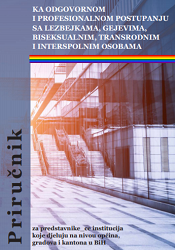
Poštovane_i profesionalke_profesionalci, ako se nikad u svom radu niste susrele_i sa lezbejkom, gejem, biseksualnom, transrodnom ili interspolnom (LGBTI) osobom, onda je ovaj priručnik namijenjen upravo vama. Razmislite! Ukoliko tokom višegodišnjeg profesionalnog rada niste upoznale_i LGBTI osobu, da li to možda znači da je niste prepoznale_i, a ne da je nije bilo?! Dopustite da navedemo jedan primjer. Prema rezultatima popisa stanovništva iz 2013. godine, u Federaciji BiH živi oko 80.000 građanki i građana koje_i se ne izjašnjavaju kao pripadnice_i konstitutivnih naroda, već kao pripadnice_i nacionalnih manjina, kao Bosanke_ci i/ili Hercegovke_ci, kao pripadnice_i drugih etničkih identiteta, ili se naprosto ne izjašnjavaju u vezi s etničkom pripadnošću. Uzimajući to u obzir, da li ste se u radu susreli_e sa Romkinjama_Romima, Jevrejkama_Jevrejima, Albankama_ Albancima, Crnogorkama_Crnogorcima? Ili sa osobama koje se nacionalno ne izjašnjavaju? Njih u FBiH ima oko 18 hiljada. Poznajete li osobu koja se izjašnjava kao Hrvatica_Hrvat u Kantonu Sarajevo? Njih 17.000 tako se izjasnilo. Pripadnice_pripadnike svih ovih zajednica i grupa sigurno poznajete. Kako je onda moguće da ne poznajete niti jednu ili jako mali broj LGBTI osoba, koje, prema procjenama, širom svijeta čine od 3 do 12 posto ukupnog broja stanovništva? U Kantonu Sarajevo, 10 posto stanovništva je više od 40.000 osoba – da li je, stoga, moguće da nikada niti jedna LGBTI osoba nije došla po uslugu kod vas?
More...
This ebook is a collection of paper from an international conference: The women in leading positons", which has been held on November, 2005. The main topic was an analyse why in Czechia men are still prevalated in the leading positons. Vážené čtenářky, vážení čtenáři, žen je v dozorčích a správních radách, mezi generálními řediteli a na nejvyšších manažerských pozicích pomálu. Konstatování, k němuž lze v případě České republiky dojít i při letmém pohledu na data o tom, jak jsou ženy reprezentovány na rozhodovacích pozicích – a to nejen v privátním sektoru. Proč ale na uvedených postech chybějí, v čem „zaostávají“ za muži, že jim nejsou na takové úrovni rovny, co jim brání v tom, aby uspěly a vůbec dostaly šanci svým kolegům a nadřízeným dokázat, že mají na to danou pozici zaujmout? Tyto a další otázky jsme si v Gender Studies, o.p.s. kladly, když jsme se zamýšlely nad dalším kolem Soutěže o nejlepší firmu s rovnými pří ležitostmi pro ženy a muže v České republice a jejím stěžejním tématem. Na jednu stranu z celé řady výzkumů a statistik víme, že ženy jsou srovnatelně vzdělané a mají tedy alespoň na úvod svých kariér podobnou star tovací čáru jako muži. Na druhou stranu však tytéž výzkumy a statistické údaje uvádějí, že ženy významně převažují mezi nezaměstnanými právě v době, kdy by své kariérní plány měly začít uplatňovat, tj. ve věku mezi 25 a 35 lety, a že - pokud zaměstnané jsou - jejich výdělek je ve srovnání s pří jmem jejich mužskými kolegy nižší a kariérní vzestup pozvolnější. Jak je to možné a kde se stala „chyba“? Nedostatek žen v rozhodovacích pozicích souvisí s celou řadou aspektů, z nichž mnohé jsou nepojmenovatelné nebo spjaté s tradičními stereotypy o mužských a ženských rolí, a proto těžko odbouratelné. Má-li dojít k nějaké změně v zastoupení žen a mužů na různých úrovních rozhodování, je třeba nejen citlivosti k tomuto tématu „shora“, tedy ze strany stávající ho vedení, ale i obecné otevřenosti žen i mužů k diskusi o vlastních rolích – zvolených i tradičních, životních a kariérních plánech, a nepochybně také o možnostech sladit soukromí s rodinou a zaměstnáním. [...]The women in leading positionsThe women in leading positionsThe women in leading positionsin Czechia
More...
Izborom tekstova dr Ksenije Atanasijević Etika feminizma obuhvaćeni su oni njeni radovi u kojima se ona bavila temom žene. Već na prvi pogled pada u oči da je Ksenija Atanasijević napisala mnogo takvih tekstova, u raznim žanrovskim oblicima i u veoma širokom tematskom okviru. Pisala je o: filozofiji feminizma; tretmanu žene u filozofskim i literarnim delima; zatim o stvaralaštvu žena, životima istaknutih žena i njihovim dostignućima; feministima i antifeministkinjama; borbi žena da ostvare politička, ekonomska i socijalna prava; organizacijama žena kod nas i u inostranstvu; bliskosti feminističke i pacifističke ideologije. Uz to, napisala je niz prikaza i ocena domaćih i stranih knjiga o ženi i feminizmu, kao i knjiga koje su napisale žene. Ovi tekstovi su publikovani u intervalu od 1923. godine, kad u časopisu Ženski pokret izlazi njena prva studija koja eksplicitno ima za temu ženu — “O emancipaciji žena kod Platona” —, do 1959. godine, kad je u listu Republika izašao prikaz “80–godišnjica smrti Žorž Sandove”. Osim toga, i u svojim drugim tekstovima o filozofskim i književnim ili teorijskim temama, na primer u studijama o lirskom filozofiranju Rabindranata Tagore i filozofiji Božidara Kneževića, Ksenija Atanasijević, kad za to ima povoda, ne zaobilazi temu žene. Bezmalo, tokom celog svog bogatog, plodnog i raznovrsnog stvaranja naša najveća filozofkinja, naprestano je pisala o ženi i ženskoj sudbini.
More...
U kontekstu naglog uspona fašizma u Evropi i njegove pobede u pojedinim zemljama, jedno od pitanja koje se postavljalo u beogradskoj javnosti, odnosilo se na mogućnosti njegove pojave i u Jugoslaviji, i u skladu sa tim, na analize uslova koji u zemlji postoje za eventualni razmah fašističkih ideja. Nasuprot dominantnom stavu da u zemlji nema fašističkih pokreta, levičari su registrovali njihovo prisustvo, posebno izraženo u rasističkim obeležjima. Demokratskoliberalno stanovište je odbacivalo ove teze sa obrazloženjem da se fašizam uglavnom javlja u gradovima, a da u zemlji seljaka fašističke ideje mogu da nastanu samo kao plod kafanskih razgovora. Po mišljenju intelektualaca ove struje, socijalni uslovi u Jugoslaviji nisu bili pogodni za njegov razvoj, a ideje pojedinih pokreta koje su „ličile“ na fašizam, uglavnom su ocenjivali kao marginalne i potpuno bezopasne. Minimizujući fašističku opasnost u zemlji, liberalno stanovište ni u Ljotićevom pokretu nije videlo sklonost ka fašizmu, već samo njegove „primese“, „loš surogat“ i „neozbiljna oponašanja fantasta“, sklonijih diktaturi nego temeljima ove ideologije. Ambivalencija konzervativnih krugova ispoljavala se i u ovom pitanju. Fašističke ideje su odbacivane kao i teze da su prisutne u zemlji, ali su se istovremeno za Jugoslaviju tražila rešenja koja su uzor pronalazila upravo u njima. Desničari su odricali da su i sami nosioci fašističkih ideja, ali ne zato što se sa njima nisu slagali, već što su verovali da su „novi nacionalizmi“ – fašizam i nacionalsocijalizam – specifično italijanski i nemački produkt, dok je ideologija Zbora, iako sastavni deo globalne pojave „novog nacionalizma“, autentična domaća tvorevina.
More...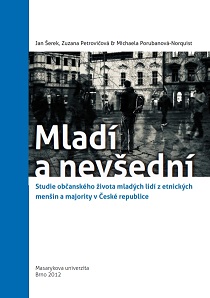
The goal of the book is to capture perceptions of the Czech society and subsequent civic participation among young people from two ethnic minorities (Roma and Ukrainian) and the social majority. The authors focus on young people’s overall evaluation of the society, confidence in institutions, perceived collective efficacy and perceived discrimination. They study the patterns of young people’s civic participation, and also how these patterns relate to person’s social position, perceptions of the society and social environment. In their analyses, they build on two types of data (questionnaire-based survey and focus groups), collected in 2010–2011.
More...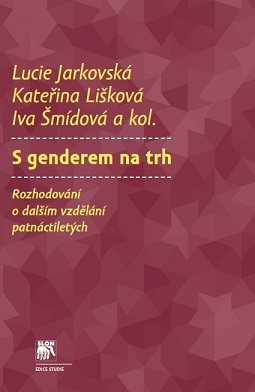
The book focuses on the interconnected systems of education and labour market. This qualitative research conducted in families and schools of fifteen years old girls and boys is set in the context of contemporary research of gender aspects of educational systems and the paid-work sphere. It deals with the problem of choosing secondary school and future vocation at the end of the elementary school. The findings of the research are grounded both in sociological theories (emphasising the connection between the social structure and the behaviour of individual actors) and in feminist approaches (emphasising the necessity of social change towards a fair and just society).
More...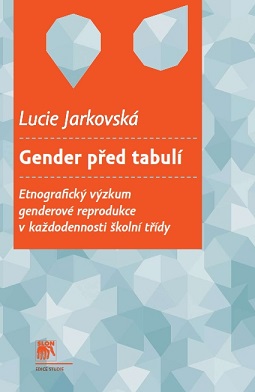
This ethnographic study analyses the (re)production of gender in the classroom. It is theoretically grounded in the ethno-methodological approach and inspired by the poststructuralist research of children and gender. This focuses on 11-13 years old children in school environment (music, art, and family education classes). The analysis applies a complex perspective on gender reproduction within the classroom and focuses on gender at distinct levels (the level of everyday interaction, the level of discourse and positioning of individuals within the discourse, and the level of individual identities and the importance of gender for girls and boys).
More...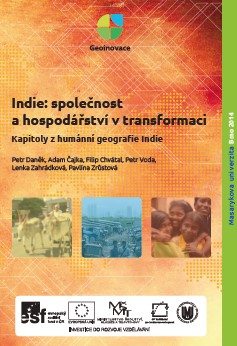
Life has changed in India during the last quarter of the century. This book is concerned with social, economic and political changes, and their geography, during this period. These changes could be interpreted, at the most general level, as a manifestation of the latest wave of economic globalization, which started in the USA and Europe in the 1970s. How authors prove, this interpretation would be too simplistic, ignoring the complexities of Indian social life.
More...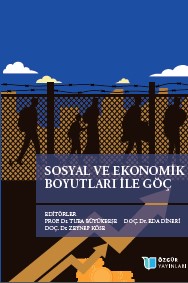
Göç ve göçmenlik kavramı insanlık tarihi kadar eski olan bir kavram olmakla beraber aynı zamanda birçok ülkenin de ortak problemidir. Daha iyi ve rahat bir yaşam sürme arzusu, daha yüksek ücret düzeylerinde çalışma isteği gibi sebeplerde gönüllü olarak başka ülkeye göç edenlerin yanı sıra savaşlar ve doğal afetler gibi insanların kendi can güvenliğini sağlamak için zorunlu olarak yaşadığı yeri terk edip başka bir ülkede belki de daha farklı şartlar altında yaşamak zorunda olduğu bir durum vardır. Göçün yapılış şekli, sebebi ne olursa olsun hem göç veren hem de göç alan ülke için farklı sorunları da beraberinde getirmektedir. Son yıllarda göç hareketliliğinde gözle görülür bir artış meydana gelmiştir. Artan göç hareketliliği karşısında başta Avrupa olmak üzere tüm dünya sorunun çözümü için bir arayış içine girmiştir. Türkiye hem gelişmiş batı ülkeleri hem de az gelişmiş diğer ülkeler arasında bulunmakta ve bu nedenle de özellikle düzensiz göçmenler tarafından bir geçiş güzergâhım olarak kullanılmaktadır. Özellikle Ortadoğu ve Balkanlarda yaşanan savaşlar ve istikrarsızlıklar Türkiye’ye doğru yoğun bir göç dalgasına neden olmuştur. Türkiye dem geçmişten gelen bağlar ve duymuş olduğu sorumluluk anlayışı nedeni ile zor durumdaki sığınmacılara ev sahipliği yapmıştır. İçinde bulunduğumuz çağın çok fazla göçe şahitlik etmesi nedeni ile bu çağa göçler çağı adı verilmiştir. UNCHR verilerine göre günümüzde dünya üzerinde Mayıs 2022 itibari ile evlerini terk et mek zorunda kalan insan sayısı 100 milyonu aşmıştır. Bu insanların 3 milyon 800 binine de Türkiye ev sahipliği yapmaktadır. KALMİREC Göç, Nüfus, Eğitim ve İstihdam Sorunları Uygulama ve Araştırma Merkezi’ne ithafen hazırlanan kitabımız on bölümden oluşmaktadır. Birinci bölümde yurttaşlık hakları ve insan hakları üzerinde kavramsal çerçeveden bahsedilmektedir. İkinci bölümde makroekonomik çerçeve kapsamında uluslararası göç- kalkınma ilişkisine değinilmektedir. Üçüncü bölümde unicorn ve decacorn kavramları tanıtılarak güncel verilere yer verilerek ve göçmen girişimcilik kavramı üzerinde durulmuştur. Dördüncü bölümde Avrupa Birliği-Türkiye İlişkilerinde İş Birliği ve Çatışma Alanı Olarak Suriyeli Sığınmacılar Meselesi başlıklı çalışmaya yer verilmektedir. Beşinci bölümde göçün kentleşme üzerindeki etkisi incelenmektedir.
More...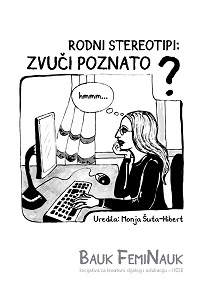
The book “Gender Stereotypes: Sounds Familiar?” is a part of the project An Initiative for Creative Dialogue and Education. Together with the group “Brkate” and comic book author Jakov Čaušević, TPO Foundation Sarajevo designed the comic book edition: Bogey Femiteaching. The aim of Bogey Femiteaching is to challenge prejudices on feminism and gender equality, and to question the position of women in contemporary BosnianHerzegovinian society through the use of comics genre and humour. Our choice for the comics genre is twofold. It has potential to engage young people with a variety of subjects, while simultaneously acting as an educational tool in an encouraging and non-intimidating manner. Initially, our team aimed only at publishing twenty comic stories and to present them to the wider public – especially young people, through setting up an exhibition. However, we decided to take the project a step further due to the positive interaction and the great interest young people showed during exhibitions. This experience also led us to conclude that the comics genre is an ideal form for an interdisciplinary approach to education. It provides a great motivating tool for all those who are not as interested in the traditional educational methods, such as books for example. Building on this initial success, the edition of Bogey Femi-teaching was completed with an additional book, “Gender Stereotypes: Sounds Familiar?”, which represents a unique combination of educational comics with shorter thematic texts. They directly challenge and question a variety of gender and feminist related issues, as well as discourses tied to education, patriarchal family values, law, science, religion, politics, media, domestic violence, and many other gender-based discriminatory practices. We are strongly convinced that only through a critical evaluation of the politics of established gender norms, while using the lens of humour, a positive contribution towards a more realistic representation of existing discrimination, oppression and exclusion can be made. In other words, femiteaching should not at all be seen as a bogey. Instead, it should be seen as an opportunity to visualise an idea about a world in which men and women, as well as other excluded and marginalised groups and individuals, equally participate in all walks of life.
More...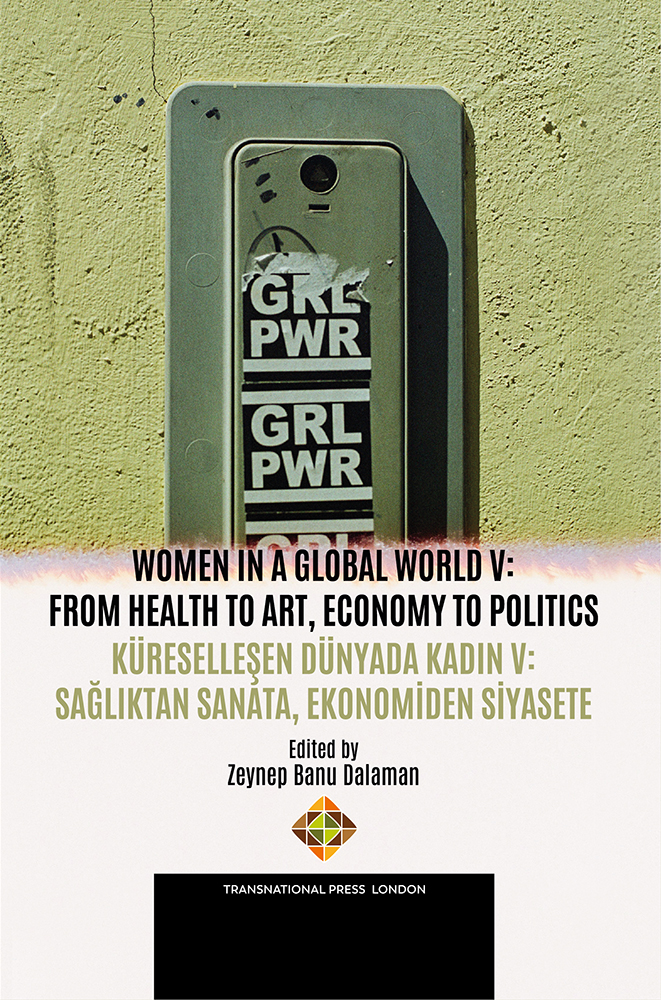
Women in a Global World V: From Health to Art, Economy to Politics offers an in-depth exploration of women’s roles, challenges, and achievements across diverse domains in today’s interconnected world. Edited by Zeynep Banu Dalaman, this volume gathers insights from leading scholars and researchers, dissecting the multifaceted issues impacting women globally and regionally.Organized into six sections, the book begins with the harsh realities of gender inequality, violence, and the institutional support available to women, including discussions on the effects of gender apartheid and misogyny. Moving to the realm of artistic and literary expression, it highlights female resilience and creativity, showcasing iconic figures like Grace Nichols and Paula Scher, and examining the evolution of women’s roles from traditional forms to modern representation.The third section delves into the unique vulnerabilities women face during disasters, including invisible labor and health challenges, while the fourth addresses the economic empowerment of women through employment initiatives, the hurdles of workplace inequality, and strategies for economic resilience. Health-focused topics in the fifth section bring attention to reproductive health, midwifery, and evidence-based practices that impact women’s well-being across life stages.Finally, the book examines women’s political and media representation, from the historical legacy of female leaders to contemporary issues such as gender quotas and gendered disinformation. By interweaving these perspectives, Women in a Global World V provides a profound understanding of women’s ongoing struggle for equality, creativity, and empowerment within a rapidly changing global landscape.Ideal for scholars, policymakers, activists, and anyone interested in the intersections of gender, society, and global dynamics, this volume is a vital resource for understanding and supporting women’s roles in shaping the future.
More...